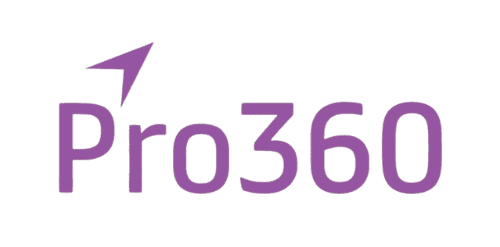Real Estate Inventory & Purchasing Management Software


Real estate inventory & purchasing management is the systematic process of tracking properties, construction materials, and purchasing workflows within the real estate industry. It ensures proper control over assets such as land, buildings, construction supplies, and vendor contracts. Efficient inventory and purchasing management reduces financial risks, eliminates wastage, and enhances operational efficiency for developers, contractors, and property managers.
Importance of Inventory Management in Real Estate
Inventory is one of the largest investments for real estate businesses. From construction materials to unsold properties, effective tracking is crucial for:
Avoiding project delays
Preventing over-purchasing or stock-outs
Reducing material wastage
Ensuring accurate property listings and availability
With real-time inventory systems, businesses gain visibility into stock levels and property pipelines, enabling smarter decision-making.
Purchasing Process Optimization
Real estate companies rely heavily on vendor relationships for construction supplies, equipment, and services. A streamlined purchasing system offers:
Automated purchase requisitions and approvals
Vendor evaluation and contract management
Transparent cost tracking
Faster procurement cycles
This reduces manual errors and ensures timely availability of resources.
Material & Property Tracking
Advanced inventory systems allow real estate companies to track both tangible materials (cement, steel, equipment, furniture) and intangible assets (available plots, apartments, rental properties). Tracking helps maintain:
Real-time updates on stock levels
Accurate property availability status
Reduced material theft or misuse
Enhanced accountability in projects
Budget Control & Cost Efficiency
Purchasing and inventory directly impact project budgets. Automated systems help:
Monitor purchase expenses against budgets
Compare vendor pricing and negotiate better deals
Prevent duplicate orders and overspending
Ensure higher profit margins on real estate projects
Integration with ERP & Financial Systems
When integrated with ERP, inventory and purchasing management ensures:
Automated linking with accounts payable/receivable
Smooth cash flow monitoring
Accurate financial reporting
Compliance with industry regulations
This enables businesses to align operational efficiency with financial control.
Real-Time Reporting & Analytics
Decision-making in real estate requires accurate insights. Inventory & purchasing systems provide:
Reports on material usage per project
Cost vs. budget analysis
Vendor performance reports
Property sales and stock dashboards
These analytics help managers optimize resource allocation and future planning.
Multi-Project & Multi-Location Management
Real estate companies often manage multiple projects across different cities. A centralized system enables:
Standardized purchasing policies
Consolidated material tracking across projects
Multi-location inventory monitoring
Transparent inter-project transfers
This improves coordination and reduces operational complexity.
Benefits for Developers & Property Managers
Reduced wastage and theft of materials
Accurate property listings and sales tracking
Faster procurement and vendor management
Improved project delivery timelines
Higher ROI through cost optimization
Future of Real Estate Inventory & Purchasing Management
The future lies in AI, IoT, and automation. With smart sensors, businesses can monitor material usage on-site in real-time. AI-driven demand forecasting predicts purchasing needs, while cloud-based systems provide access from anywhere. Sustainable practices like green material tracking will also become essential for environmentally conscious projects.
Vendor & Supplier Relationship Management
One of the most important aspects of real estate inventory and purchasing is managing suppliers and vendors. A business must carefully evaluate and select vendors who can provide quality materials, timely delivery, and cost efficiency. Establishing transparent contracts and performance benchmarks ensures that suppliers meet the expected standards consistently.
By building long-term partnerships with trusted vendors, real estate companies reduce supply chain risks and avoid project delays. Proper performance monitoring and effective conflict resolution strategies help organizations maintain smooth operations while ensuring every procurement step adds value to the business.
Vendor evaluation & selection based on quality and pricing
Long-term supplier relationship building
Transparent contract management
Performance tracking and reporting
Conflict resolution & risk minimization
Real Estate Stock & Property Availability Management
For real estate businesses, keeping accurate records of available units, plots, or properties is essential. A centralized inventory system provides real-time updates, ensuring that sales teams always have the latest data for customer inquiries. This openness boosts customer confidence and quickens sales conversions.
By analyzing demand and availability patterns, companies can forecast future requirements and make informed purchasing decisions. This approach minimizes double booking risks and ensures every property listing is accurate and reliable, strengthening the brand’s credibility in the market.
Real-time tracking of stock and properties
Accurate data for sales and client interaction
Centralized inventory system
Demand forecasting for better planning
Reduced chances of double booking or errors
Risk Management & Compliance in Real Estate Procurement
Procurement in real estate involves multiple transactions, contracts, and supplier interactions. Without proper compliance checks, companies risk fraud, mismanagement, or financial losses. Digital procurement systems help create a transparent record of every deal, making it easier to track and audit.
By maintaining audit-ready reports and following industry regulations, businesses reduce the chances of disputes and legal issues. Risk management frameworks ensure early identification of potential threats, enabling real estate companies to safeguard their investments and maintain credibility.
Fraud prevention with digital records
Compliance with legal standards
Audit-ready procurement reports
Transparency in supplier dealings
Risk assessment and mitigation strategies
Sustainability & Green Purchasing in Real Estate
Sustainability has become a key focus for modern real estate companies. By adopting green purchasing practices, businesses can choose eco-friendly materials and collaborate with suppliers who follow sustainable methods. This lessens the impact on the environment and supports international sustainability objectives.
Green procurement helps improve a company’s reputation among investors, customers, and regulatory bodies. By promoting energy-efficient, eco-conscious practices, real estate firms can create long-term value, attract environmentally aware clients, and contribute positively to the community.
Use of eco-friendly and sustainable materials
Partnering with certified green suppliers
Reducing carbon footprint in procurement
Promoting long-term environmental benefits
Enhancing corporate social responsibility image
